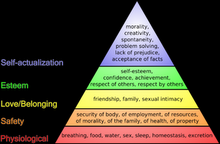
My insights: There are so many potential directions that public health can develop into in the future including:
- Eliminating Health Disparities
- Devote resources not only to research and development, but also to policy, programs, advocacy, promotion, prevention and treatment.
- Establish limits on health care costs, and pharmaceutical costs.
- Enhancing global health leadership and partnerships through both the public and private sector.
What is important to keep in mind is that when we (as public health professionals) reach out in these different areas, we have to remember that the world is diverse and each public health initiative will have its unique challenges. One other important point is that the world is full of very educated people who may be interested in collaborating with you in your ideas and initiatives and you shouldn't be afraid to contact them for guidance or advice.
Unique quotes
“People don’t change when you tell them there is a better option. They change when they conclude they have no other option.” – Michael Mandelbaum quoted in The World is Flat, Thomas L. Friedman, pg 462




















